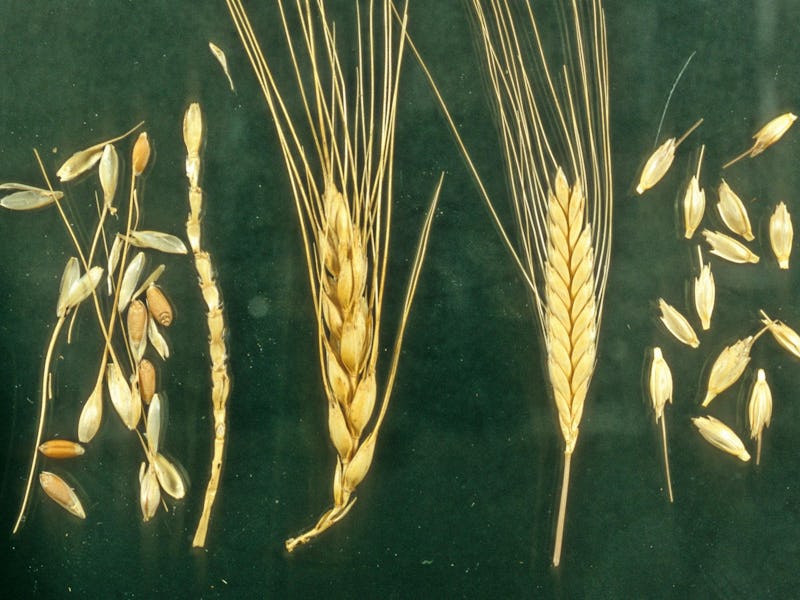Report: Revive These Nearly Extinct Grains to Eat Like an Ancient Gladiator
Stay ahead of the curve.

Avoiding gluten is America’s favorite pastime, but for the vast majority, the fixation is on the wrong problem. Unless you have a rare case of celiac disease or legitimate intolerance, there’s nothing unhealthy about gluten, and cutting it out of your life can do more harm than good, especially if you’re cruising straight to the gluten-free section of Whole Foods to fill your basket with the large variety of packaged bread, cookies, pizzas, and pastries you can find there.
See, the issue was never really gluten, but the volume of consumption of highly processed white flours. By substituting highly processed gluten-free flours, you’re not doing yourself any favors. The real solution? Let’s revive ancient grains, a pair of German plant biologists argue in a new article published in Trends in Plant Science. Nearly extinct varieties of wheat, like Einkorn and Emmer, could create new niche markets for farmers, diversify ecosystems, and satisfy consumer demand for food that makes you feel like you’re traveling back to a simpler time, they argue.
A simpler time, like in 'The Gladiator.'
Einkorn and Emmer are both varieties of wheat. They used to be cultivated locally in parts of the Middle East and Europe, although they went out of fashion with the industrialization of agriculture, when farmers turned to fast-growing, high-yield varieties.
Of course, these days plant ecologists are coming around to the idea that focusing on a handful of crop types to the exclusion of all others is really bad for ecosystems, and consumers are starting to realize that eating vast quantities of one type of wheat isn’t great for human health, either.
The paper authors argue that plant biologists, farmers, millers, and bakers should work together to revive ancient grains and market a product that consumers want to buy. It’s been done before — spelt had all but been forgotten before a concerted effort was made in the 1970s to revive traditional recipes and promote it as an alternative to standard wheat. Many people who are sensitive to wheat find they can tolerate spelt easily, although spelt also contains gluten (because, again, for the vast majority of people, gluten isn’t a problem).
Emmer and Einkorn are both hardy crops that can grow in poor soils and tough environmental conditions, where common wheat will not do well. This presents an opportunity for farmers to create an economy, boost local food security, and revive traditional recipes.
Also, you can be pretty sure the Whole Foods hipsters will be lining up when they hear about the hot new trend in ancient grains.